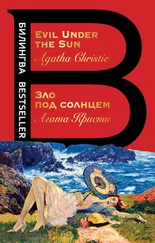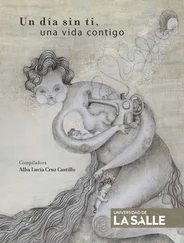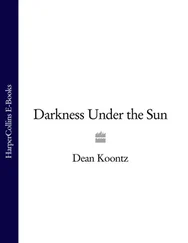Culich scowled. Fishing boundaries were loosely agreed to between and among clans, with details left to local leaders. Although Mittack was a neighboring clan and ally, formal agreements between hetman didn’t always seep down to the local level. This particular issue had festered for several years, and it displeased Culich that the issue remained unresolved without the clan hetmen becoming involved.
“No, Belman,” answered Culich, “it won’t be on the agenda today. Stay after the meeting, and you and I can discuss how to proceed.” The Arwin boyerman was Belman Kulvin. Custom allowed he could be addressed by his title, which Culich had nearly done. However, that would have signaled his level of displeasure. If the later individual discussion didn’t go well, “Belman” could quickly change to “Boyerman Arwin.”
He wished that either he could light a fire under Belman or the man would demonstrate enough incompetence so Culich could replace him. As hetman, it was Culich’s right to remove any boyerman, though a right judiciously asserted and best resorted to only when the other boyermen recognized the necessity.
Moving on from Arwin, Culich greeted the other two boyermen, as he sat in the hetman’s chair facing the open double doors through which he could see the cavernous hall. The boyermens’ path to the meeting room was intentional. As they crossed the empty hall, each man’s eyes invariably rose to the central platform and dais, the tapestries and the banners on the encircling walls. He would hopefully be humbled by the expanse, the emptiness reminding him of the hall packed with clanspeople on Gathering Day and of his responsibilities to the clan and its members. Culich knew the feeling himself ever since his father first took him at the age of twelve to the meetings.
One at a time or in clusters, the men attending this day came through the double doors, exchanged greetings and small talk, and found their places. Nine of the eleven boyermen were present. A tenth had broken a leg, and his eldest son represented the district. An eleventh boyerman was too old to travel and had written a formal request to step down from his position, in favor of a nephew who had served as proxy at several previous meetings. Culich would soon make the formal appointment.
When Culich Keelan greeted the last seating boyerman, he sat back in his chair and surveyed the other eleven men at the table. The general bustle died down, as everyone sensed the meeting was about to begin, and all eyes turned to their hetman. Naturally, Culich’s chair was slightly larger and more ornate than the other eleven, appropriate for the hetman of the Keelan Clan and Province. The hereditary leader of the Keelan Clan was imposing. Not so much his actual size, which was of good height and still robust, in spite of his gray hair and beard, but more the aura of his personality, his ability to project the difficult-to-describe essence of a leader, his known history of fairness to those recognizing him as their liege, and his decisiveness in defense of the clan’s interests.
The men representing the eleven districts of Keelan Province sat in seats randomly assigned yearly at the round table, the shape and assignments to avoid hints of favoritism toward any boyermen. The table and seating arrangement were traditional since the time of Culich’s great, great grandfather, the precedent set to avoid squabbles about positioning and rank among the boyermen from provinces of differing populations, wealth, and shifting political aspirations. Still, there were always grumblings. The provinces in the best condition, at least in their own minds, thought they should sit closest to the hetman. Naturally, nothing was spoken. Tradition and the expected response from Culich eliminated overt complaints.
Behind the twelve men at the round table sat aides—sons, advisors, others of note, and occasionally church prelates, depending on the agenda. Behind Culich were three occupied chairs: Kennrick, Luwis, and one other.
All of those present were men, with the one exception. Maera Keelan was twenty-three Anyar years old—twenty Earth years—and the eldest daughter of Culich Keelan. She sat with serious demeanor, her green eyes shifting with moods from warm to impassive, to cold. Her hair coiled atop her head, and, as some in the room knew from experience, that head housed a tongue capable of flaying the purveyor of parochial interests or slovenly arguments. That she was in the room at all rested on Culich’s simply saying so. For the last three years, Maera had attended all of the most important meetings, including those of the hetman and his eleven district boyermen, in the formal role as recorder, since Culich insisted he needed a written record to remind him of advice from the boyermen, as well as the necessity for a record of their deliberations for the clan history.
Though Maera spoke only when prompted by her father, her demure dress and manner fooled no one. On her lap lay a small wooden platform holding a vial of ink, a cup from which sprouted quills made of feathers from Caedellium seabirds, and a stack of blank paper. As the men conversed, the assiduous scratch of her quill point on paper became part of the ambient noise. Culich would occasionally ask her to repeat something said earlier that day or perhaps from a past meeting. In those latter cases, she would delve into bound ledgers on an adjacent chair to retrieve the appropriate transferred notes.
It was in these requests for reviewing past proceedings that Maera might interject dreaded comments such as, “I wrote down that Boyerman Arwin said earlier today that his district was short of wheat this year and needed a supplement from the central clan stores. Perhaps I misheard, since the boyerman reported sales of wheat to Mittack at the meeting last quarter.” She would look up from her writings, give the target her attention, and wait while the boyerman explained to Culich how he failed to keep sufficient grain reserves.
However, Maera’s less acknowledged role came later, when her father reviewed the meeting with her and other advisors. By not actively taking part, she could observe the proceedings and often caught subtleties Culich missed or wanted confirmed.
In addition to her intellect and insights, Maera was, in all but title, a scholastic of Caedellium history and customs. Ever since learning to read, she had voraciously consumed writings from all of the provinces, and Culich had indulged her by paying to have copies made at abbeys throughout Caedellium. Culich smiled to himself every time he remembered when she unearthed a two-hundred-year-old reference to a treaty between the Stent and Moreland clans that helped settle a dispute over clan boundaries in Stent’s favor—an outcome that the Stent Hetman communicated a debt owed to Keelan. For the Keelan Hetman, it was an outcome to be savored, since he respected the Stent Hetman and despised Moreland’s leader. Culich chastised himself for the guilty pleasure he felt at such a minor thwarting of Hetman Moreland, but still smiled.
Equally amusing, tinged with regret at his own actions, was the memory of another issue involving Moreland—a border disagreement involving a distant and unpopulated part of northern Keelan Province. A meandering stream used as part of their clans’ boundary cut a new course southward. A square mile of land that had been south of the stream found itself north. The formality of the border was in doubt, and the Moreland Hetman claimed the square mile now part of Moreland and would bring up the issue at the next All-Clan Conclave in Orosz City. Culich’s intention to dispute Moreland’s claim was dissected calmly and cruelly by his eldest daughter.
* * *
“So, Father. You will dispute Moreland’s claim to the shift in boundaries?”
Читать дальше












